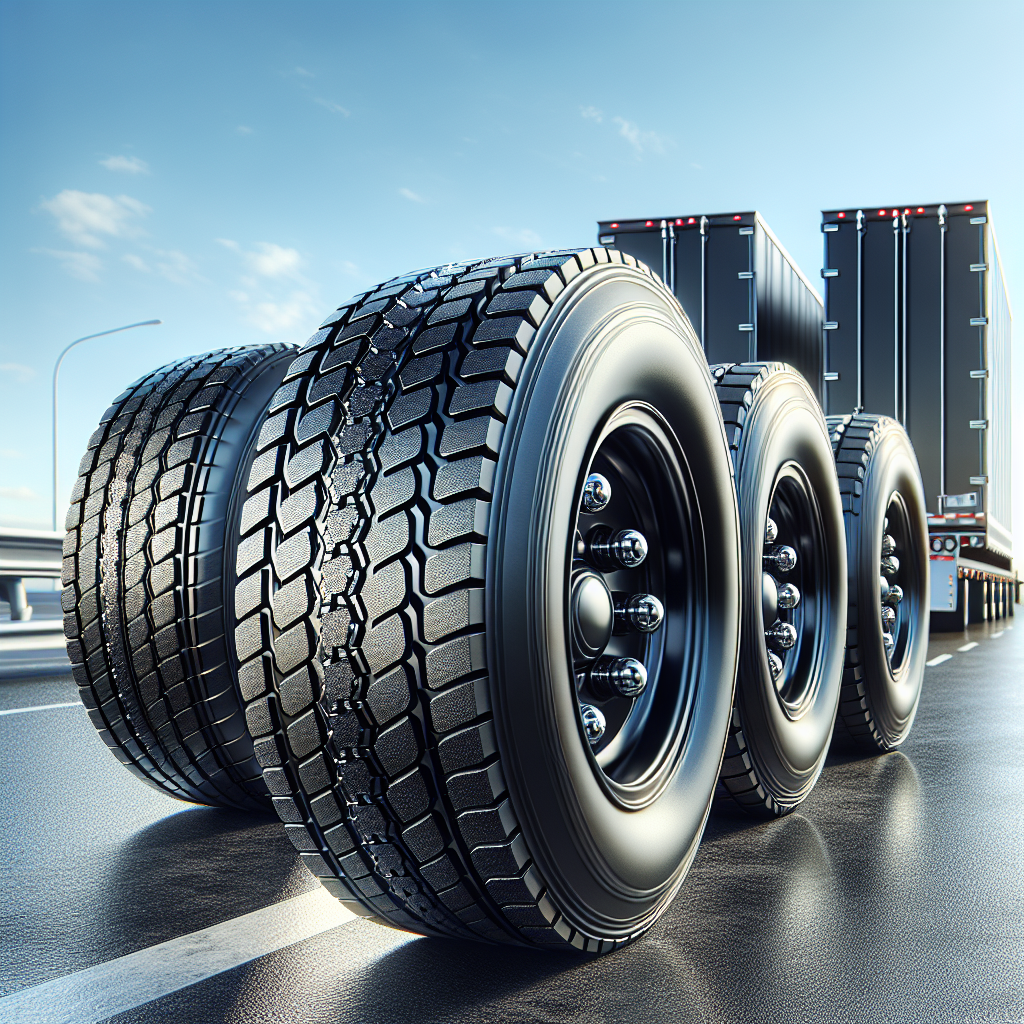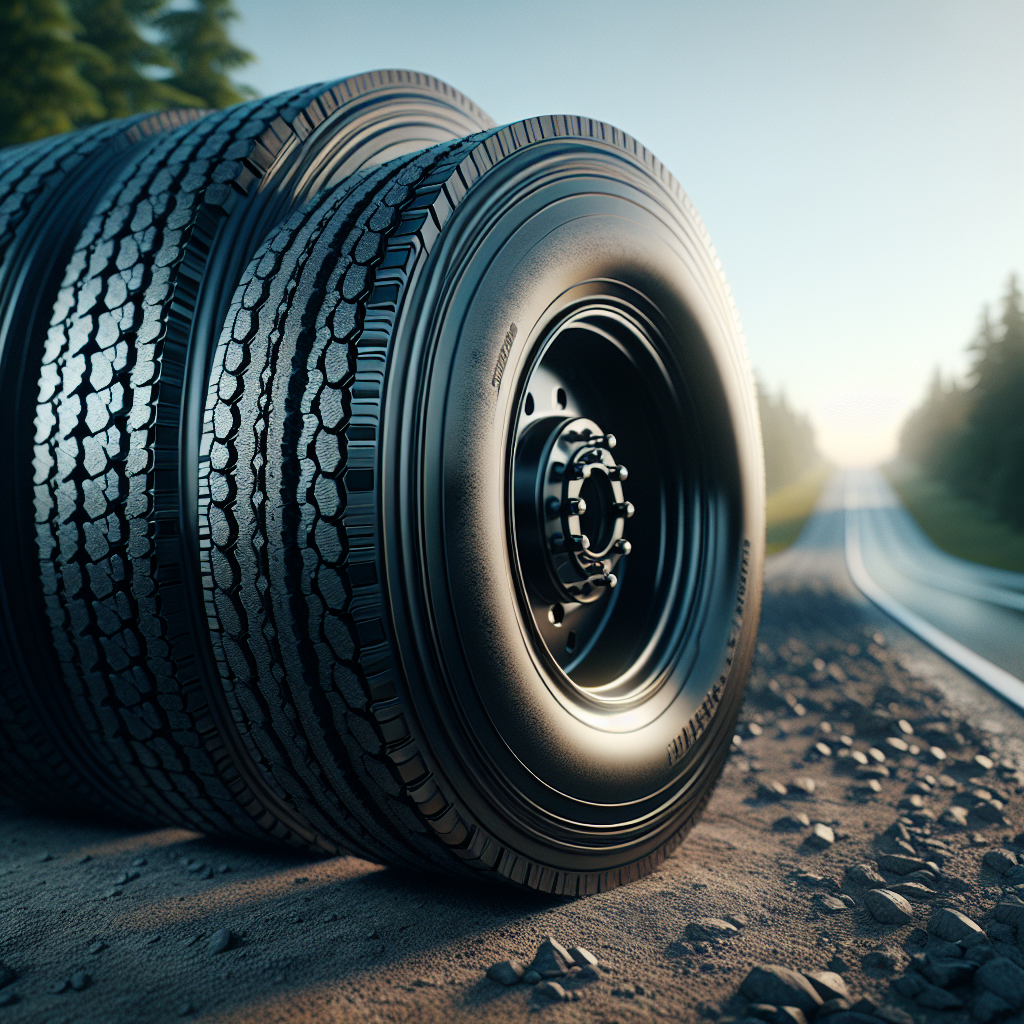When it comes to trailer safety and performance, tires play a crucial role. They are the only point of contact between the trailer and the road, making their condition directly impact the safety of your load and the overall driving experience. Understanding the importance of trailer tires is essential for anyone who tows regularly.
Well-maintained tires can enhance fuel efficiency, improve handling, and reduce the risk of blowouts. Here are several factors to consider:
- Tread Depth: Adequate tread depth is vital for traction, especially in adverse weather conditions.
- Pressure Levels: Proper inflation ensures even tire wear and optimal performance.
- Age and Wear: Tires degrade over time, and even if they look fine, they may need replacing if they are old.
- Alignment and Balance: Misalignment can lead to uneven tire wear and compromised stability.
By paying attention to these factors, you can significantly lower the risk of tire-related incidents on the road. Regular checks and maintenance not only prolong the life of your tires but also ensure that you are towing safely.
For peace of mind while towing, remember to tow with peace of mind, knowing that trailerwatchdog is standing guard.
Identifying Signs of Trailer Tire Wear

Identifying signs of trailer tire wear is essential to ensure safe towing and prevent potential accidents. Tires can wear unevenly due to various factors, and recognizing these signs early can save you from more extensive damage and costly repairs. Here are some common indicators to look for:
- Uneven Tread Wear: If you notice uneven wear patterns across the tire surface, it could indicate issues with alignment, balance, or suspension components.
- Cracking or Dry Rot: Visible cracks in the sidewalls or tread can suggest that the tires are aging and may need to be replaced soon.
- Bald Spots: Areas where the tread has worn down significantly can lead to reduced grip and increased risk of hydroplaning.
- Bulges or Blisters: These are signs of internal damage and can indicate that the tire is at risk of failure.
- Vibration or Noise: Unusual vibrations while towing may signal alignment problems or that the tires are not functioning properly.
Regular inspections of your trailer tires can help you spot these warning signs before they become serious issues. By staying vigilant and addressing tire wear promptly, you can maintain optimal performance and safety on the road.
Checking Tire Pressure for Optimal Performance

Maintaining the correct tire pressure is crucial for ensuring optimal performance and safety while towing your trailer. Under-inflated or over-inflated tires can lead to a variety of problems, including reduced fuel efficiency, increased tire wear, and compromised handling. Here are some key points to consider when checking your trailer tire pressure:
- Know the Recommended Pressure: Always refer to the manufacturer’s specifications for the correct tire pressure, which can typically be found on a sticker inside the trailer or in the owner's manual.
- Use a Reliable Gauge: Invest in a quality tire pressure gauge to ensure you're getting accurate readings. Digital gauges are often more precise than analog ones.
- Check When Cold: Tire pressure should be checked when the tires are cold, as driving can heat them up and cause pressure readings to increase.
- Regular Inspections: Make it a habit to check your tire pressure regularly, ideally before each trip. This will help you catch any issues early.
- Adjust Accordingly: If your tire pressure is too low, inflate it to the recommended level. Conversely, if it's too high, release some air to ensure it falls within the safe range.
By keeping a close eye on your trailer tire pressure, you can enhance safety, improve handling, and extend the life of your tires.
Examining Tread Depth for Safety Assurance

The tread depth of your trailer tires plays a vital role in ensuring safety on the road. Adequate tread depth is essential for maintaining traction, especially in wet or slippery conditions. Understanding how to examine tread depth effectively can prevent accidents and enhance the longevity of your tires. Here are some important guidelines:
- Use the Penny Test: A simple way to check tread depth is to insert a penny into the tread grooves with Lincoln's head facing down. If you can see the top of Lincoln's head, it’s time to replace the tire.
- Check the Tread Wear Indicators: Most tires are equipped with built-in tread wear indicators that become visible when the tread depth reaches 2/32 of an inch. If you see these indicators, it’s a clear sign that your tires need replacing.
- Measure with a Ruler: For a more precise measurement, you can use a ruler to measure the tread depth directly. A depth of at least 4/32 of an inch is recommended for safe wet-weather performance.
- Inspect for Uneven Wear: Besides checking depth, look for signs of uneven wear, which could indicate misalignment or other issues that need addressing.
- Regular Checks: Make it a habit to periodically check the tread depth on all tires, especially if you frequently travel long distances or in varying weather conditions.
By taking the time to examine your trailer’s tread depth, you are prioritizing safety and ensuring that your tires perform optimally in all situations.
Recognizing Age and Expiration of Trailer Tires

Understanding the age of your trailer tires is crucial for maintaining safety and performance. Just like any other component of your trailer, tires have a lifespan, and using them beyond their expiration date can lead to dangerous situations. Here’s how you can recognize the age and expiration of your trailer tires:
- Check the DOT Code: Every tire has a Department of Transportation (DOT) code printed on its sidewall. This code includes a four-digit number that indicates the week and year the tire was manufactured. For example, a code of 2119 means the tire was made in the 21st week of 2019.
- Know the Lifespan: Most tire manufacturers recommend replacing tires every 6 to 10 years, regardless of tread wear. Factors such as exposure to sunlight, temperature fluctuations, and storage conditions can affect the longevity of tires.
- Visual Inspection: In addition to checking the DOT code, inspect the tires for signs of aging, such as cracks, bulges, or dry rot. These physical indicators can signal that the tire is no longer safe for use.
- Keep Records: Maintaining a record of your tires' purchase date and installation date can help you keep track of their age. This practice ensures that you won’t overlook the need for replacement as they approach their expiration.
- Consult Manufacturer Guidelines: Always refer to the manufacturer’s recommendations for tire maintenance and replacement. They provide valuable insights into how long their tires are expected to last under normal usage conditions.
Being proactive about recognizing the age and expiration of your trailer tires can significantly enhance your safety on the road and prevent unexpected failures.
Utilizing Monitoring Systems for Tire Health
In today's fast-paced world, ensuring the health of your trailer tires has never been more critical. One of the most effective ways to maintain tire safety and performance is by utilizing advanced monitoring systems designed specifically for trailer health. These systems provide real-time data that can alert you to potential tire issues before they escalate into serious problems.
- Real-Time Monitoring: Monitoring systems continuously track tire pressure and temperature, offering immediate alerts if any readings fall outside safe parameters. This proactive approach allows you to address tire issues before they lead to blowouts or other catastrophic failures.
- Data Analysis: Many advanced systems analyze tire health over time, giving you insights into wear patterns and helping you predict when tires may need replacement. This data-driven approach can save you time and money in the long run.
- Peace of Mind: Knowing that your trailer tires are being monitored continuously allows you to focus on your journey rather than worrying about potential tire failures. This peace of mind is invaluable, especially during long trips.
- Integration with Other Systems: Modern monitoring systems can often integrate with other vehicle monitoring technologies, providing a complete picture of your trailer's health and performance.
With a reliable monitoring system in place, you can ensure that your trailer tires remain in optimal condition, reducing the risk of accidents and costly repairs. Tow with peace of mind, knowing that TrailerWatchdog is standing guard. Visit trailerwatchdog.com to learn more about our cutting-edge trailer monitoring systems and how they can enhance your travel experience.








